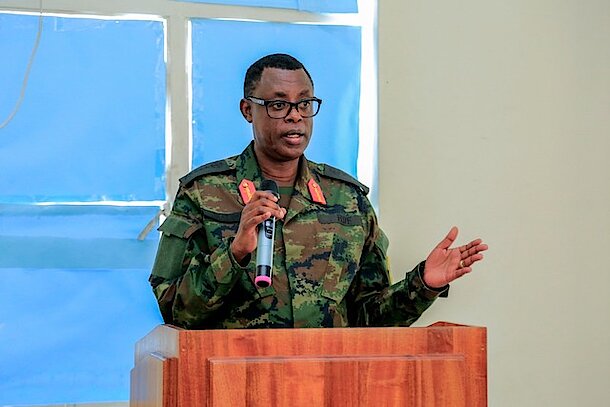Rwanda has fiercely rejected U.S. sanctions imposed on February 20, 2025, targeting James Kabarebe, Minister of State for Regional Integration, calling them ‘unjustified and unfounded.’
The U.S. Department of the Treasury, under Executive Order 13413 as amended, implicated Kabarebe, alongside M23 and Congo River Alliance spokesperson Lawrence Kanyuka Kingston and two of Kingston’s companies, for driving violence and human rights abuses in eastern Democratic Republic of the Congo (DRC).
The sanctions follow M23’s rapid territorial gains, capturing Goma on January 27 and Bukavu on February 16, which the U.S. attributes to Rwanda’s backing, accusing Kigali of destabilizing the region and displacing thousands.
In a statement from Kigali on Friday, February 20, 2025, Rwanda dismissed the sanctions as ineffective, arguing, “If sanctions could resolve conflict in eastern DRC, we would have had peace in the region decades ago.”
The government highlighted the complexity of the conflict along its western border, noting that for three years, hostile forces—including the Congolese armed forces (FARDC), SAMIDRC troops, Burundian forces, the FDLR genocidal militia, and 300 European mercenaries recently granted safe passage through Rwanda to Romania—have evaded similar punitive measures.
“Rwanda’s only aim is a secure border and an irreversible end to the politics of armed ethnic extremism in our region,” the statement read. “Rwandans have the right to live in peace and without the perpetual threat of insecurity originating from the DRC.”
Kigali labeled the U.S. sanctions as “unwarranted external interference” in African-led mediation efforts, such as the Angola-led Luanda Process and initiatives bolstered by the joint EAC-SADC Summit and African Union Summit.
“Punitive measures make no contribution toward long-term security, peace, and stability for all the countries of the Great Lakes region,” it argued, urging global support for these regional frameworks as “the only credible pathway to a negotiated solution, it read.
This defiance comes amid strained ties with the West. On February 18, 2025, Rwanda suspended its 2024-2029 bilateral aid program with Belgium, accusing Brussels of politicizing development finance to block Kigali’s access to funds and spearheading EU sanctions over its alleged M23 support.
“Belgium has made a political decision to choose a side in this conflict, which is its right, but politicizing development is plainly wrong,” Rwanda stated.
The U.S., however, insists Rwanda’s support for M23—already under U.S. and UN sanctions—threatens DRC sovereignty and risks a broader war. Spokesperson Tammy Bruce called for Rwanda to withdraw its troops and end backing for armed groups. The conflict’s toll, including the deaths of three UN peacekeepers, has intensified global concern.
As Kigali doubles down on its commitment to African-led solutions, the sanctions on Kabarebe—a pivotal figure in Rwanda’s leadership—mark a deepening rift with the U.S. and Belgium.















